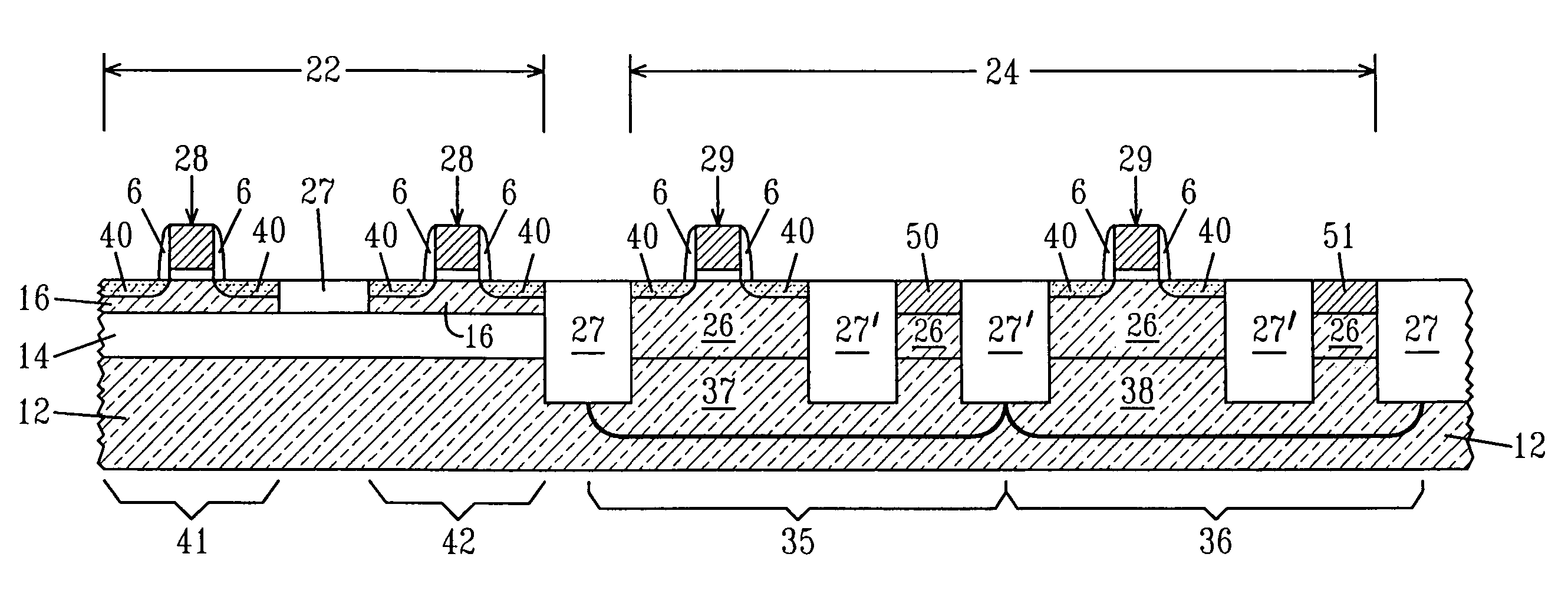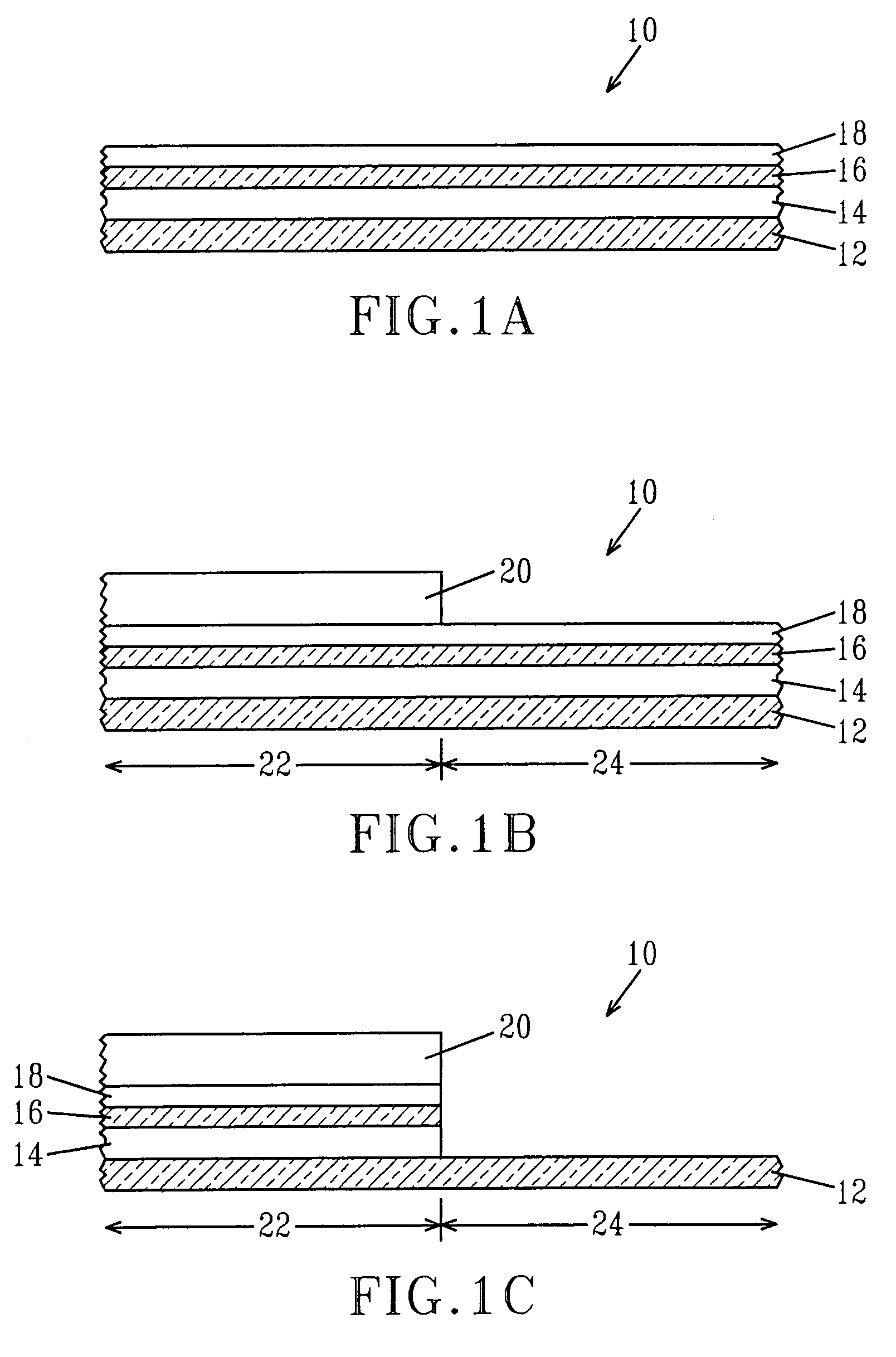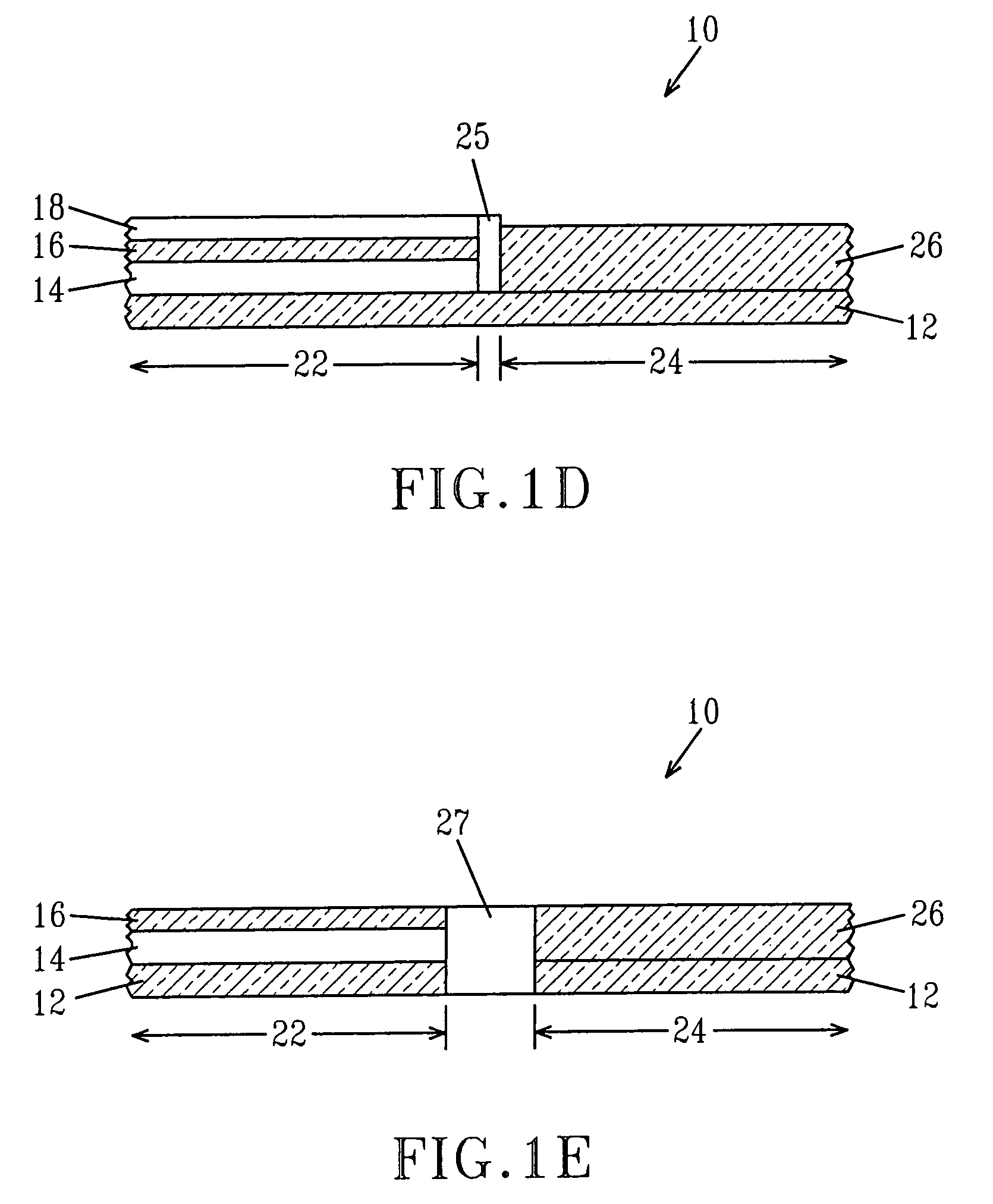Hybrid bulk-SOI 6T-SRAM cell for improved cell stability and performance
a cell stability and performance improvement technology, applied in the field of semiconductor devices, can solve the problems of reducing the stability of certain circuit array cell structures, negating the favorable effect of adaptive well biasing, and affecting the stability of certain circuit array cells, such as the commonly used 6t sram cell,
- Summary
- Abstract
- Description
- Claims
- Application Information
AI Technical Summary
Benefits of technology
Problems solved by technology
Method used
Image
Examples
Embodiment Construction
[0023]The present invention, which provides a method for increasing the SRAM cell stability and performance in a hybrid bulk-SOI technology over that of a conventional SOI technology, will now be described in greater detail by referring to the following discussion as well as the drawings that accompany the present application. In the accompanying drawings, like and correspondence elements are referred to by like reference numerals. It is noted that the drawings of the present invention are provided for illustrative purposes and thus they are not drawn to scale.
[0024]FIG. 1A illustrates a substrate 10, i.e., hybrid substrate, which may be employed in the present invention. As shown, the substrate 10 includes a surface dielectric layer 18, a first semiconductor layer 16, an insulating layer 14, and a second semiconductor layer 12.
[0025]The surface dielectric layer 18 of the substrate 10 is an oxide, nitride, oxynitride or other insulating layer that is either present in one of the ini...
PUM
 Login to View More
Login to View More Abstract
Description
Claims
Application Information
 Login to View More
Login to View More - R&D
- Intellectual Property
- Life Sciences
- Materials
- Tech Scout
- Unparalleled Data Quality
- Higher Quality Content
- 60% Fewer Hallucinations
Browse by: Latest US Patents, China's latest patents, Technical Efficacy Thesaurus, Application Domain, Technology Topic, Popular Technical Reports.
© 2025 PatSnap. All rights reserved.Legal|Privacy policy|Modern Slavery Act Transparency Statement|Sitemap|About US| Contact US: help@patsnap.com



